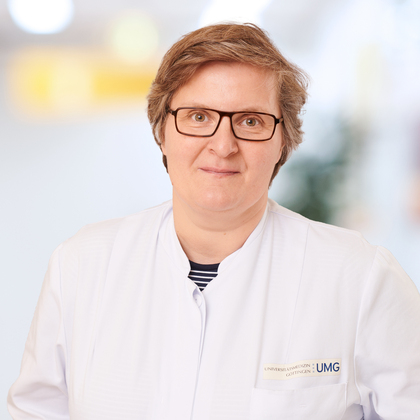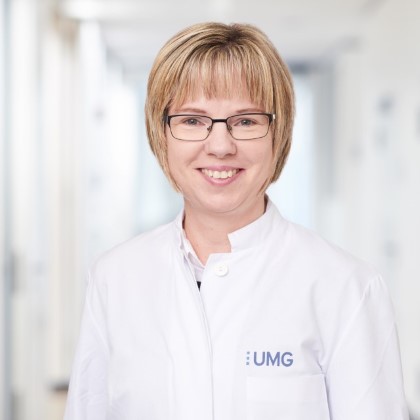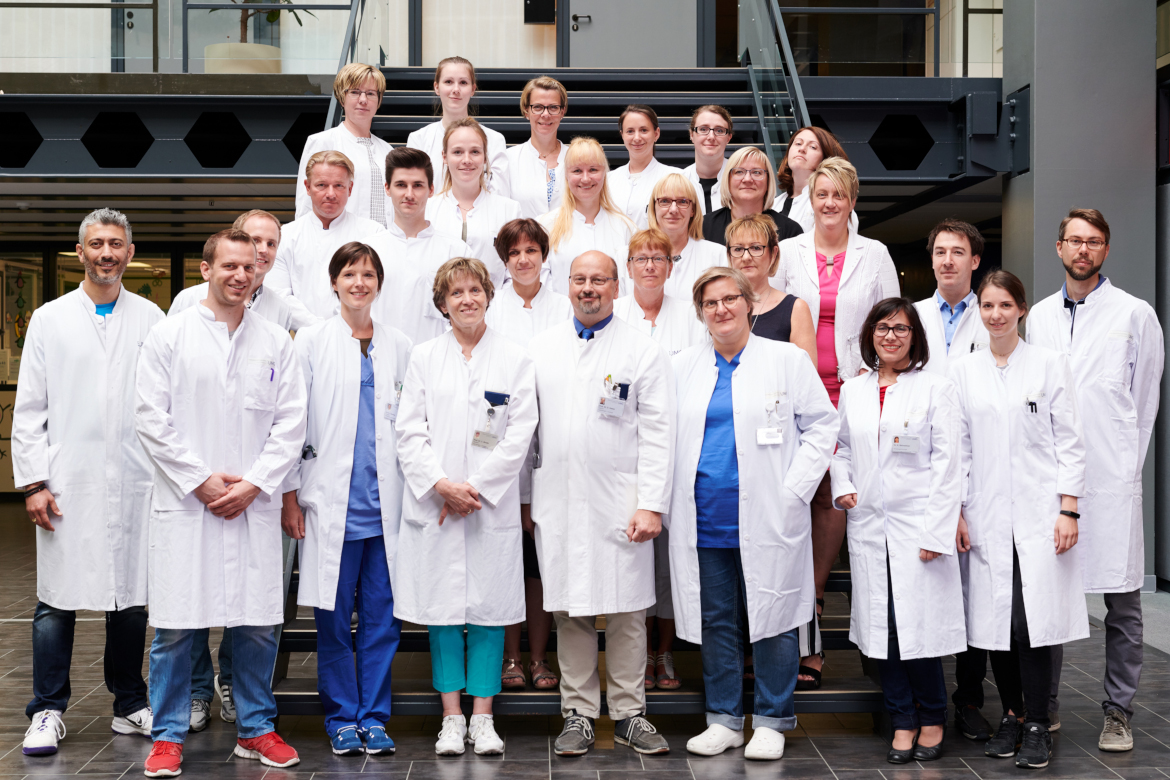Arbeitsgruppe Haase
Genomik hämatologischer Neoplasien
Der Schwerpunkt der Forschung der Arbeitsgruppe Haase liegt auf der Genomik hämatologischer Neoplasien.
In unseren Forschungsprojekten bearbeiten wir Fragestellungen, die sich aus der Routinediagnostik im INDIGHO-Labor ergeben. So ist unsere Arbeitsgruppe maßgeblich an einer internationalen Kooperation zur Optimierung zyto- und molekular-genetischer Prognosesysteme beteiligt. Außerdem verfolgen wir innovative Ansätze, um erworbene genetische Veränderungen, die die Prognose und Therapie beeinflussen, besser nachweisen zu können. Derzeit laufende Forschungsprojekte haben z.B. das Ziel, Patienten wiederholte Knochenmarkpunktionen zu ersparen. Dies erlaubt es auch genetisch charakterisierte Zellklone zur Aufklärung der genetischen Evolution engmaschig longitudinal zu verfolgen.
Weitere Forschungsprojekte behandeln die Aufdeckung kryptischer genetischer Veränderungen, den Einfluss externer (z.B. Therapien) und interner (z.B. Eisenüberladung) Faktoren auf die Genomdynamik beim Myelodyspastischen Syndromen (MDS), die Bedeutung früher genetischer Veränderungen (z.B. Verlust des Y-Chromosoms) für den Verlauf eines MDS und die Pathogenese komplexer Anomalien.
English version: INDIGHO-laboratory
The laboratory for Individual Genome Diagnostics for Hematology and Oncology (INDIGHO) is an internationally renowned institution with a focus on genome research in hematology and comprehensive genetic diagnostics in hematology. The INDIGHO-laboratory is working with state-of-the-art automated equipment and offers all relevant types of genetic analyses from chromosome banding- and FISH-analyses as well as SNP-array to standard molecular methods as well as high-throughput DNA sequencing. All work is carried out by highly qualified medical, scientific and technical staff.
The research focus at the INDIGHO-laboratory is on translational projects, specifically on the study of the biology of acute myeloid leukemia (AML) and myelodysplastic syndromes (MDS), genetic evolution and the improvement of diagnostic procedures. In our diagnostic laboratory, we are constantly developing and improving methods for the analysis of acquired genetic alterations. These genetic alterations may affect prognosis and therapy of hematologic diseases. We follow innovative ethical approaches, to avoid, for example, repeated bone marrow punctures by analyzing circulating disease-related progenitor cells from the peripheral blood which enables us to closely follow genetically characterized cell clones during the course of the disease and under therapy. This allows to objectify therapy response or to early detect disease progression or imminent treatment failure.
Our research projects therefore aim to improve diagnostics, to answer questions arising from routine diagnostics and to investigate open questions about genetic evolution spontaneously or under the influence of therapy.
Thus, our working group is significantly involved in an international cooperative for the optimization of cytogenetic and molecular genetic prognosis systems of the MDS Foundation, The International Working Group on Prognosis in MDS (IWG-PM). Further scientific focus includes the elucidation of genetic evolution and the detection of cryptic genetic variants. Amongst others, we are currently working on:
- the influence of external (e.g. therapies) and internal (e.g. iron overload) factors on genome dynamics in MDS,
- the characterization of genetic subtypes in MDS (e.g. loss of the Y-chromosome, complex abnormalities),
- the interaction between cytogenetic and molecular genetic variants,
- the pathogenesis of complex anomalies and
- the significance of rare anomalies in MDS.
Kooperationen
Wir führen unsere Forschungsprojekte in enger Kooperation mit dem Deutschen MDS Register, der Deutschen MDS-Studiengruppe (D-MDS) und den Universitätskliniken für Hämatologie und Onkologie in Düsseldorf, Dresden, Hannover, Leipzig und Mannheim durch.
Internationale Kooperationspartner sind die EMSCO (European Myelodysplastic Syndromes Cooperative) im Rahmen von klinischen Studien, die MDS Foundation bei der Entwicklung und Verbesserung von Prognosesystemen, das Josep Carreras Leukemia Research Institute (IJC) in Barcelona bei der Entwicklung von Next Generation Sequencing (NGS) aus peripherem Blut bei MDS und die MDS-Zentren Mount Sinai und Standford (beide USA) mit denen wir bei der Entwicklung des Prognosesystems IPSSR-R molecular und der Bedeutung von TP53 Mutationen bei MDS zusammenarbeiten.
Kontakt

Kontaktinformationen
- Telefax: +49 551 3962079
- E-Mail-Adresse: detlef.haase(at)med.uni-goettingen.de
Sekretariat
- Telefon: +49 551 3962072

Kontaktinformationen
- E-Mail-Adresse: julie.schanz(at)med.uni-goettingen.de
Sekretariat
- Telefon: +49 551 3968999
- Telefax: +49 551 3964633
- E-Mail-Adresse: oberarztsekretariat.haematologie(at)med.uni-goettingen.de

Kontaktinformationen
- Telefon: +49 551 3965990
- Telefon: +49 551 3962078
- Telefax: +49 551 3962079
- E-Mail-Adresse: christina.ganster(at)med.uni-goettingen.de
Das könnte Sie auch interessieren
